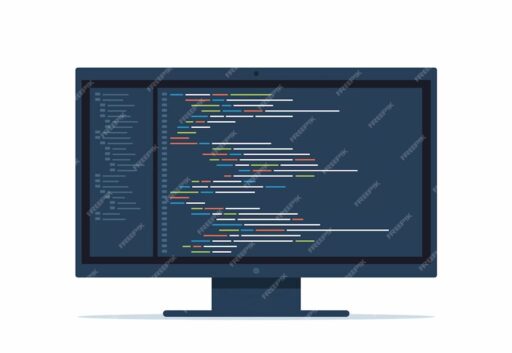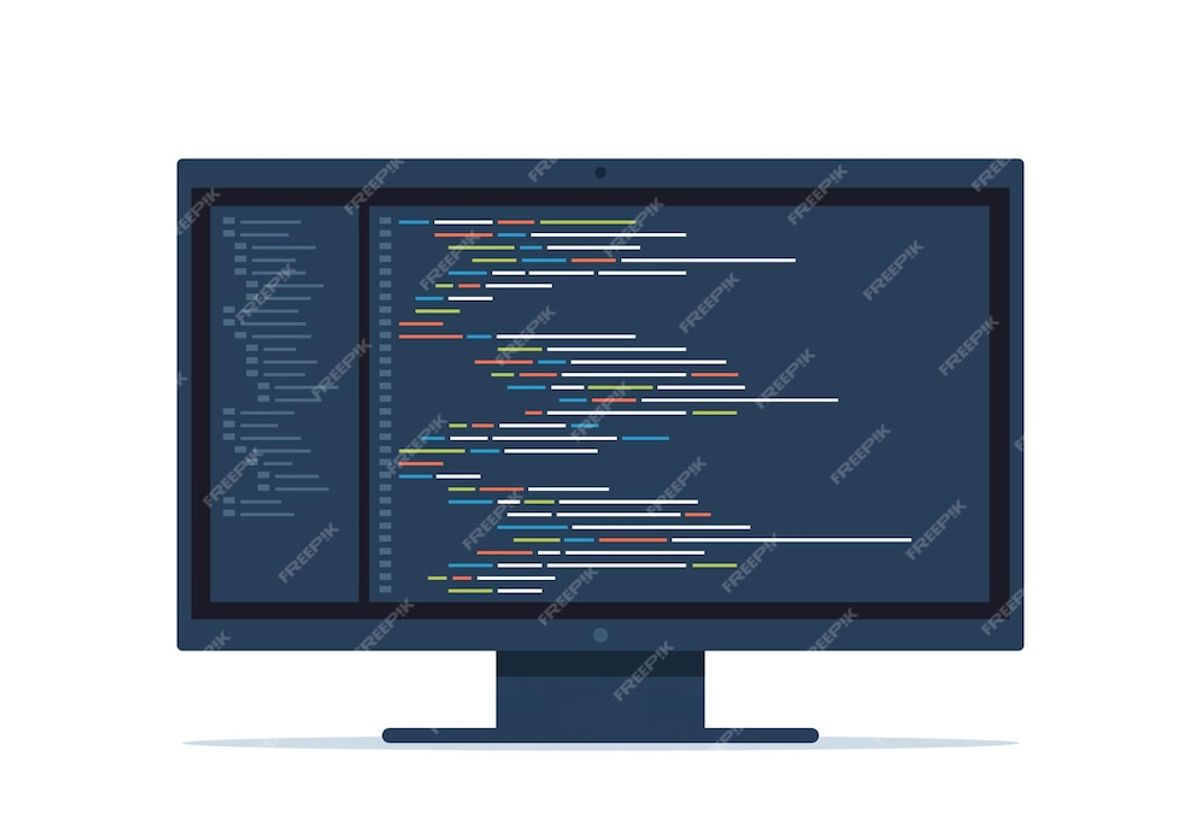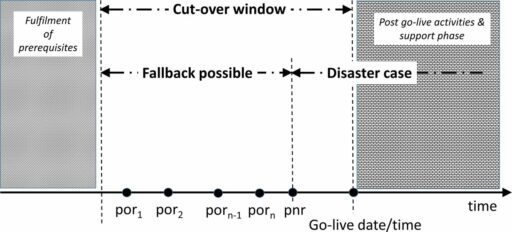Table of Contents
C++ is a powerful programming language that offers a wide range of data types to handle different kinds of data. Understanding these data types, their sizes, memory allocation, and operations is crucial for writing efficient and effective code. This comprehensive guide delves into the fundamentals of C++ data types, explores complex types, and discusses best practices for their use in variables, operations, and expressions. Whether you’re a beginner or an experienced programmer, this article will enhance your knowledge and skills in working with C++ data types.
Key Takeaways
- C++ data types are categorized into basic, derived, enumeration, and the special void type, each serving a unique purpose in programming.
- Understanding the size and memory allocation for each data type is essential for optimizing performance and memory usage.
- Variables in C++ must be declared with a specific data type, which determines the kind of data they can hold and the operations that can be performed.
- Operators and expressions in C++ are closely tied to data types, and proper type casting is necessary to prevent errors and ensure correct results.
- Choosing the right data type and adhering to best practices can significantly reduce common errors and improve the efficiency of C++ programs.
Fundamentals of C++ Data Types

Definition and Importance of Data Types
In C++, data types are fundamental constructs that dictate how the program will interpret data. Data types define the operations that can be performed on data, the memory allocation for storage, and how data is represented in the system. Understanding data types is crucial for writing efficient and error-free code.
- Memory Allocation: Different data types require varying amounts of memory, which impacts resource utilization.
- Data Representation: Ensures that data is understood by the computer for proper manipulation and storage.
- Operations and Functions: Dictates the permissible operations for variables, influencing program functionality.
Proper selection and use of data types are pivotal for code optimization, readability, and ensuring compatibility across different systems. Misuse of data types can lead to bugs, inefficient memory usage, and non-portable code. Thus, a deep understanding of data types is not just academic; it is a practical necessity for robust C++ programming.
Basic Data Types: int, char, float, double
In the realm of C++ programming, the basic data types are the building blocks for data manipulation. These types include int for integers, char for characters, float for single-precision floating-point numbers, and double for double-precision floating-point numbers. Each of these data types serves a specific purpose and has a set size in memory, which is crucial for efficient programming.
int: Typically used to store whole numbers, both positive and negative. It is one of the most commonly used data types for counting or indexing operations.char: Represents a single character and is often used in the manipulation of text.float: Stores single-precision floating-point numbers, suitable for values with decimal points that do not require double precision.double: Provides double the precision offloatand is used when higher precision for decimal values is needed.
It is essential to choose the correct data type for the task at hand to ensure accuracy and optimize performance. Misuse of data types can lead to errors or inefficient memory usage.
Understanding Size and Memory Allocation
In C++, the size of a data type dictates how much memory is allocated for storing values. Understanding the memory requirements of each data type is essential for efficient programming. Different data types consume varying amounts of memory, which impacts both the performance of the application and the system’s resource utilization.
Efficient memory allocation is key to optimizing programs and ensuring they run smoothly on different systems.
Here’s a quick reference for the size of basic data types in bytes on most systems:
| Data Type | Size (bytes) |
|---|---|
| int | 4 |
| char | 1 |
| float | 4 |
| double | 8 |
Choosing the correct data type for variables that don’t require large ranges can save memory and improve performance. Additionally, using the appropriate data type enhances code readability and helps maintain consistency across various platforms and compilers.
Complex Data Types in C++

Derived Data Types: Arrays, Pointers, Structures, Unions
Derived data types in C++ are essential for creating complex data structures that mirror real-world entities. Structures, for instance, allow grouping different data types under a single name, using the struct keyword followed by member declarations within curly braces. This is particularly useful for representing complex entities in a program.
Pointers, on the other hand, are variables that store the memory address of another variable. They are crucial for dynamic memory allocation and indirect data manipulation, providing a powerful tool for developers.
Unions are similar to structures but with a key distinction: only one member can be active at a time, sharing the same memory location. This can be beneficial when dealing with memory constraints.
Enumerations, or enum, offer a way to define a set of named integer constants, improving code readability and maintainability.
When choosing between these derived data types, consider the specific requirements of your application, such as memory usage, performance needs, and the complexity of the data you’re working with.
Enumeration Data Type: enum
In C++, an enumeration is a user-defined data type that consists of a set of named integer constants, serving as a way to group related values under a single umbrella. The enum keyword is used to define an enumeration, providing a clear and concise way to represent a collection of related items.
To declare an enumeration, you define a sequence of unique names (enumerators) enclosed in curly braces, following the enum keyword and the enumeration name. Each enumerator in the list is assigned an integer value, starting from 0 by default, and incrementing by 1 for each subsequent enumerator.
Enumerations are particularly useful for representing a set of related constants with more readability and type safety than traditional #define macros.
For example, to represent different levels of access in a system, you might define an enum named AccessLevel with constants LOW, MEDIUM, and HIGH. This not only improves code readability but also helps prevent errors that can arise from using arbitrary integer values.
The Special Case of the void Data Type
In C++, the void data type occupies a unique position. It is an absence of any data type and is used to specify that no value is available. It is commonly used in functions that do not return a value, specifically functions that are intended to perform an action rather than compute a result.
The void type can also be used to create generic pointers. A void pointer can point to an object of any data type, which is particularly useful when the specific type is not known or needs to be flexible. However, before the pointer can be dereferenced, it must be cast to a specific data type.
The versatility of void pointers makes them a powerful tool in C++ programming, but they must be used with caution to avoid type-related errors.
Understanding when and how to use the void data type is crucial for effective C++ programming. Below is a list of common uses for void:
- As the return type of functions that do not return a value.
- To declare generic pointers (
void*). - As a parameter type for functions that do not use the parameter.
- In dynamic memory allocation functions like
mallocandfree.
Variables and Data Types

Variable Declaration and Data Type Specification
In C++, variables must be declared before they can be used in the program. The declaration involves specifying the data type and assigning a valid identifier to the variable. Data types define the size and layout of the variable’s memory, the range of values that can be stored within that memory, and the set of operations that can be applied to the variable.
The syntax for declaring a variable is straightforward: data_type variable_name;. For example, int age; declares a variable named age of type int. It’s also possible to initialize a variable at the time of declaration by assigning a value to it, like so: int age = 30;.
Variables can also be declared as constants, which means their value cannot be changed once set. The const keyword is used for this purpose, followed by the data type and the variable name.
C++ also allows for the declaration of auto-typed variables, where the data type is inferred from the initializer expression. This is particularly useful when dealing with complex types or when the exact type is cumbersome to write out.
Type Modifiers: Signed, Unsigned, Short, Long
In C++, type modifiers are used to alter the properties of basic data types to fit specific needs. Type modifiers like signed, unsigned, short, and long adjust the range and size of data types. For instance, signed and unsigned can be applied to integer types to specify whether they should store negative values or not, respectively.
The short and long modifiers are used to define shorter or longer versions of integer data types. A short integer typically requires less memory, making it a suitable choice for saving space when large numbers are unnecessary. Conversely, a long integer can hold larger values, which is essential when dealing with extensive numerical data.
Here is a quick reference for the size of modified integer types on a typical system:
| Modifier | Size (bytes) | Range |
|---|---|---|
| short | 2 | -32,768 to 32,767 |
| unsigned | 4 | 0 to 4,294,967,295 |
| signed | 4 | -2,147,483,648 to 2,147,483,647 |
| long | 4 or 8 | System dependent |
It’s crucial to choose the appropriate type and modifier based on the nature of the data and the memory constraints of the system. This ensures efficient use of resources and prevents data overflow or underflow errors.
Constants and Literals in C++
In C++, constants are values that, once defined, remain unchanged throughout the program’s execution. Constants can be defined using the const keyword or the #define preprocessor directive. For instance, declaring a constant integer can be done as follows: const int maxUsers = 100;. This ensures that maxUsers will always represent the value 100, and any attempt to modify it will result in a compilation error.
Literals in C++ represent fixed values that are directly inserted into the code. They are the raw values assigned to variables and include various types such as integers, floats, strings, and characters. For example, 42, 3.14, 'A', and "Hello, World!" are all literals.
C++11 introduced the concept of user-defined literals, allowing for customized literal representations for user-defined types. This feature enhances the expressiveness of the language and allows for more readable code when dealing with specific data types or units.
It is crucial to choose the appropriate type of constant or literal to ensure that the program’s intent is clear and that memory usage is optimized.
Operators and Expressions in C++

Operators and Their Relationship with Data Types
In C++, operators are the building blocks of expressions, defining how to process and manipulate data. Operators must be compatible with the data types they work on, as the behavior of an operator can vary significantly between different types. For instance, the addition operator (+) will perform arithmetic addition on integers and floating-point numbers, but it will concatenate strings.
The relationship between operators and data types is also crucial for memory allocation and optimization. Choosing the right data type for a variable can lead to more efficient code. For example, using a char instead of an int for a variable that stores a single character saves memory and potentially improves performance.
Data types are fundamental to how operations are interpreted and executed in C++. They ensure that the computer understands the correct way to handle the data involved in an operation.
Understanding the types of operators is also essential. C++ provides various operator categories, including:
- Unary Operators: Operate on a single operand.
- Binary Operators: Require two operands.
- Ternary Operators: Involve three operands.
Each category interacts with data types in unique ways, influencing how expressions are evaluated and results are produced.
Arithmetic, Relational, and Logical Operations
In C++, operators are the building blocks that allow us to perform different types of operations on data. Arithmetic operators such as +, -, *, /, and % are used for performing mathematical calculations. Relational operators like ==, !=, <, >, <=, and >= enable us to compare values, while logical operators &&, ||, and ! are crucial for implementing logic flows in our programs.
When it comes to assignment, operators such as =, -=, *=, /=, and %= are used to assign or update values of variables. It’s important to understand how these operators work in conjunction with different data types to avoid unexpected results or errors in your code.
Remember, the choice of operator and the data types of the operands can significantly affect the outcome of an expression.
Here’s a quick reference for some of the common operators in C++:
| Operator Type | Symbols |
|---|---|
| Arithmetic | +, -, *, /, % |
| Relational | ==, !=, <, >, <=, >= |
| Logical | &&, ` |
| Assignment | =, -=, *=, /=, %= |
Type Casting and Conversion in C++
Type casting in C++ is a crucial mechanism that allows developers to convert a variable from one data type to another. Explicit type casting, also known as type conversion, is necessary when you want to ensure that an operation has operands of the same type. Implicit conversions occur automatically when the compiler deems it safe, but explicit conversions are performed by the programmer using casting operators like static_cast, dynamic_cast, const_cast, and reinterpret_cast.
Type casting can be a source of errors if not used carefully. It’s important to understand the differences between the casting operators and when each should be used to avoid unexpected behavior.
C++11 introduced explicit conversion operators to prevent the compiler from performing certain implicit conversions that might lead to semantically incorrect code. Here’s a quick reference for when to use each type of cast:
static_cast: For well-defined conversions between types, such as converting afloatto anint.dynamic_cast: Primarily used with pointers and references to classes in a polymorphic hierarchy.const_cast: To add or remove theconstqualifier from a variable.reinterpret_cast: For low-level reinterpreting of bit patterns. Use with extreme caution.
Understanding and using type casting correctly is essential for writing robust and maintainable C++ code. It allows for more control over how data is treated, but it also requires a deep understanding of the types involved and the implications of the conversion.
Best Practices and Common Pitfalls

Choosing the Right Data Type for the Task
Selecting the appropriate data type is crucial for the efficiency and correctness of your C++ program. Understanding the nature of the data you are working with is the first step towards making an informed decision. For instance, if you’re dealing with whole numbers within a known range, an int might suffice, but for larger ranges, a long could be more suitable.
Consider the following factors when choosing data types:
- Memory Allocation: Different data types occupy varying amounts of memory. Opt for smaller data types for variables that don’t require large ranges to save memory.
- Operations: The data type dictates the operations that can be performed. For example, arithmetic operations vary depending on whether you’re using integers or floating-point numbers.
- Compatibility: Ensure that the data type you choose is compatible with other parts of your program and any external systems you interact with.
By carefully considering these aspects, you can optimize your code, avoid unnecessary resource consumption, and maintain readability and portability across different platforms.
Common Errors and How to Avoid Them
In the realm of C++ programming, certain common errors are frequently encountered by developers. Understanding these errors and their origins is crucial to writing robust code. For instance, a typical mistake is using an incorrect data type that leads to overflow or underflow issues. To prevent this, always ensure that the data type chosen can handle the range of values it will encounter.
Another common pitfall is neglecting to initialize variables, which can result in undefined behavior. It’s a good practice to initialize variables as soon as they are declared:
- int myNumber = 0;
- double myFraction = 0.0;
Misusing pointers and references can also lead to segmentation faults or memory leaks. It is essential to understand the concepts of memory allocation and deallocation to use pointers safely.
Lastly, improper type casting can cause loss of information or runtime errors. Be explicit with type casts and understand the differences between static_cast, dynamic_cast, reinterpret_cast, and const_cast to use them appropriately.
Performance Considerations and Optimization Tips
When it comes to optimizing C++ applications, the choice of data types plays a pivotal role. Selecting the most appropriate data type for a given scenario can have a significant impact on the application’s performance. For instance, using int instead of long when dealing with numbers that fall within the int range can save memory and potentially increase processing speed.
- Memory Usage: Smaller data types consume less memory, which can be crucial in resource-constrained environments.
- Processing Speed: Certain operations are faster with smaller data types due to less computational overhead.
- Memory Management: Efficient use of data types can help in preventing memory leaks and managing system resources more effectively.
By being mindful of these factors, developers can write code that is not only functional but also efficient. It’s about striking the right balance between precision and performance, ensuring that the application runs smoothly without unnecessary resource consumption.
Conclusion
In this comprehensive guide, we have explored the various data types in C++, delving into their significance, applications, and the nuances of memory allocation. Understanding these data types is crucial for writing efficient and effective C++ code. From basic types like integers and floats to more complex derived and user-defined types, each plays a vital role in the construction of robust applications. As we’ve seen, the choice of data type can greatly influence the performance and functionality of a program. Whether you are a beginner or an experienced developer, mastering C++ data types is an essential step towards developing sophisticated software solutions. Remember that while you cannot change a variable’s data type after declaration, the rich variety of data types in C++ provides the flexibility needed to tackle a wide array of programming challenges.
Frequently Asked Questions
Why do we need different data types in C++ programming?
Different data types in C++ allow for the efficient and accurate representation and manipulation of various forms of data, such as integers, floating-point numbers, characters, and more. They also determine the amount of memory allocated for storing data and define the operations that can be performed on that data.
Can I change the data type of a variable after its declaration in C++?
No, once a variable has been declared with a certain data type in C++, its data type cannot be changed. If you need a variable with a different data type, you must declare a new variable.
What are the basic data types in C++?
The basic data types in C++ include int for integers, char for characters, float for floating-point numbers, and double for double-precision floating-point numbers.
What are derived data types in C++?
Derived data types in C++ are built from the basic data types and include arrays, pointers, structures, and unions. These allow for more complex data structures and memory management.
What is the void data type in C++ used for?
The void data type in C++ is used to indicate the absence of a value. It is commonly used in functions that do not return a value and for pointers that do not point to any specific data type.
How many data types are there in C++?
C++ has a rich set of data types, including the basic types (int, char, float, double), derived types (arrays, pointers, structures, unions), enumeration type (enum), and the special case of the void type. Additionally, C++ supports user-defined types through classes.





